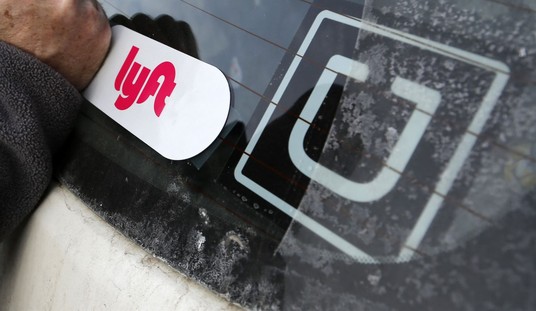It is claimed by experts in the field that a healthy ego in an individual is necessary for a well-balanced psyche, thereby helping one achieve a successful and happy life. This is perhaps true.
But there is nothing healthy about the ego currently emanating from 1600 Pennsylvania Avenue.
There was a rather remarkable example of such an ego at the time of our Founding, though nothing in history parallels what we are seeing in Washington today. The example in 18th century America can be found in the form of un homme Francais. Quelle surprise, you may say.
Edmond-Charles Genet was the first Ambassador of France to the United States of America to represent the post-Bourbon Revolutionary government of France, and he arrived in America to take up his post in 1792. Insisting on being addressed as Citoyen (citizen) Genet, he was appointed to this post by the Girondists, the party in power at this point in the deeply troubled history of the French Revolution. He came to the United States to cause as much trouble as he could, and Citoyen Genet proved to be remarkably successful in his efforts.
Having previously served in a diplomatic posting in Tsarist Russia, Genet’s Revolutionary fervor became obvious to that court, and thus he became highly displeasing to the monarch at the time, the formidable Catherine the Great. Though it was asserted that the diplomat and the Tsarist ruler were actually quite close at a certain point, said ruler was eventually obliged to chuck Genet out of the country, actually formally designating him as persona non grata.
He was rewarded by his government for his work in Russia with an even higher level diplomatic posting in the United States of America. Well aware that the American President George Washington felt very strongly that his nation must maintain a solid position of neutrality vis a vis the warring nations of Europe, Genet arrived in America equally determined to do as much damage to this neutrality as possible.
The Ambassador arrived in Charleston, South Carolina, and instead of immediately going to the American capitol to present his credentials to the President, which was the norm, he stayed in the southern Untied States, where he was grandly feted and treated as quite the celebrity. Citoyen Genet thoroughly enjoyed the adulation, making a lengthy lap of honor around the countryside, while at the same time arranging for the acquisition of numerous American ships to be outfitted as privateers to be used to capture, harass or destroy British vessels. Genet also busied himself everywhere he went with the establishment of seditious groups of individuals which were referred to at the time as “democratic societies.” They were intended to influence the opinion of the American citoyen in favor of the Revolutionary government in France at the time, and, incidentally, to turn them against the government of the American President George Washington.
Citizen Genet had such a high regard for himself, inflated even more by the accolades of the American people , (all of which he believed), (parallels, anyone?), that he actually was serious in his presentation to the American people of – himself – as an alternative to the leadership of George Washington.
Thomas Jefferson, who was a thorough supporter of the Revolution in France, and remained so even after the Terror convinced many former supporters that this was not just a repetition of the American Revolution in achieving the freedom of the individual, that this was in fact an increasingly bloody and despotic regime. As such, the Secretary of State at the time lent his considerable support to Citoyen Genet, and advocated the creation of said “democratic societies.” This was quite troubling for the Federalists, the political group who did not support the French Revolution, and who felt much closer to the British way of doing things. One could say that the creation of these groups, and the actions of Citoyen Genet, caused quite a polarization in America at the time.
It could also be said that these “democratic societies” provided the basis for the creation of two political parties in America, the Federalists, of which Alexander Hamilton was an adherent, and the democratic-republican party of Thomas Jefferson. The first group resembles what is the Republican party of today, while the second is more representative of the Democratic party of the present time. At the time, emotions that were pro-French and anti-British, or conversely, Francophobic and Anglophilic, were so strong on the part of the American public that it constituted a logical reason to have allegiance to a particular political group. The mainstream media at the time were highly and loudly supportive of these passionate conflicting beliefs.
Le plus ca change, le plus les meme choses, don’t you know?
The actions on the part of this highly self-regarding individual became so outrageous that even Jefferson began to pale in his support of Citoyen Genet. His recall was eventually demanded by President Washington of whatever the current government was of the nation of France. By the time of this action, however, the French Revolutionary government was no longer in the hands of the Girondists, and the succeeding government called for the lively fellow’s arrest once he regained his native land.
What happened next speaks, yet again, to the extraordinary character of our first and greatest leader, George Washington.
Never having entertained a moment of self-doubt in his life, Monsieur (no longer Citoyen) Genet went directly to President Washington, requesting that he be allowed to stay in America Despite the enormous trouble and quite serious international intrigue that Citoyen Genet had caused during his turbulent period as a diplomat of France, George Washington graciously allowed him to remain in the United States. Genet not only became an American citizen, he later married the daughter of the Governor of New York, Mr.Clinton, and moved to that state where he had several children, of whom there are numerous descendants to this day.
In an ironic twist of history, a great grandson of Mr. Genet, having grown up in his native America, during the First World War became so overwhelmed by his French heritage that he left the American air force that he had joined at a very early age to leap into the arms of the French Foreign Legion, where he quickly died in the service of that military force.
One could say that Genet had attempted to bring hope and change to America, but was not ultimately successful in doing so. Such a demonstration of ego has rarely been seen in our history, but nothing like what we are seeing now can compare, even with the Frenchman who set himself up as an alternative to George Washington.
The ego we are seeing exercised in the President of the United States now is a person who is so out of the realm of reality that he, Barack Hussein Obama, is promising to “lower the oceans,” or “raise them,” I can never remember; who is presenting to the Democratic party that the difference in future victory or defeat is that “now you have Me;” who says blithely to the White House press corps (pronounced “corpse” by Obama), “…you can ask questions, but I won’t answer them;” to “I will not tolerate…(take Reuters).”
There has been no other American President in history who has had the “ego,” or as the Greeks who defined the concept, such an “overextension of ego,” to dare to say anything like the above.
Hopefully, this tragically elected leader of the United States will be the last.








Join the conversation as a VIP Member